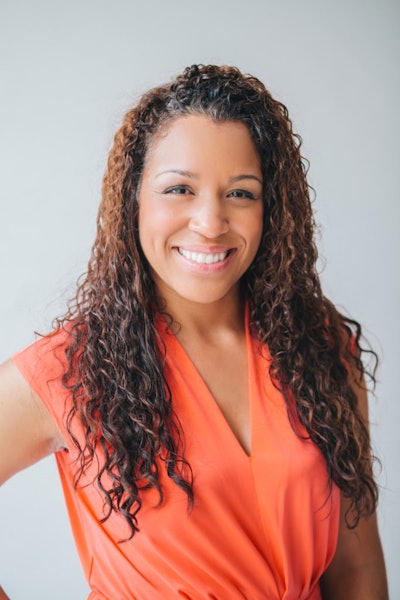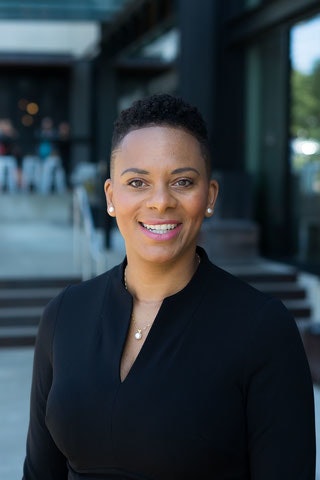It’s a text group or social media page filled with recommendations on the latest store with stocked shelves. It’s driving hour after hour, putting miles on the car and refilling the gas tank, going into store after store and coming out empty-handed. It’s sometimes going hungry.
 Nicole Lynn Lewis, founder and CEO of Generation Hope.
Nicole Lynn Lewis, founder and CEO of Generation Hope.
“Student parents are more likely to be low income, struggling with basic needs like housing or food insecurity, and they are experiencing extreme time-poverty between working, school, and care-giving,” said Nicole Lynn Lewis, founder and CEO of Generation Hope, an organization that provides direct support for parenting students and drives systemic change.
“If you’re a parent and you have to decide between food on the table, formula or other, and education, you’ll always pick food on the table,” said Lewis. “The whole picture isn’t just that [students] can’t afford [formula], it’s that they can’t find it. It will have huge repercussions on families and getting their education.”
The shortage, brought on by pandemic related supply chain issues and the temporary closure of the Abbott formula factory in Michigan, has reduced American stock by almost 50%, according to Datasembly, a data firm. The Biden Administration and the Food and Drug Administration are adjusting to allow the import formula from other countries, and the U.S. Department of Agriculture’s assistance program for impoverished young families, Special Supplemental Nutrition Program for Women, Infants, and Children (WIC), is accepting more waivers on some of its more common restrictions, like brand and amount.
“We know that parenting students are more likely to be women of color, often single or head of the household,” said Ali Caccavella, senior learning specialist at The Hope Center, a research center based in Temple University that works to make higher education more effective and equitable. Caccavella co-authored a February 2022 brief on parenting in college which broke down the demographics of student parents.
“[The formula shortage] is just adding another layer of unacceptable rates of basic needs insecurity,” said Caccavella. “We see, heartbreakingly, this is more likely to impact students who are systemically marginalized.”
According to the report, 70% of all student parents experience food or housing insecurity or homelessness, but between 85% and 90% of Black and Latinx student parents face basic needs insecurity. A quarter of parenting students of color could not feed their children balanced meals due to financial insecurity. Ten percent (10%) of Asian, Black, and Latinx student parents reported that they would cut the family’s meal size, skip meals, or not eat for a whole day, due to financial struggles.
Rising gas prices have further complicated the financial situation for student parents, who are more likely to struggle finding steady transportation. Generation Hope helps students with the cost of gas and connects them with neighborhoods that have pooled cans of formulas in a communal effort to ensure no baby goes hungry. Dr. Daria Willis, president of Howard Community College.
Dr. Daria Willis, president of Howard Community College.
As the federal government brings more formula into the states, Lewis is coordinating with the White House to make sure these resources are shared with the communities that need them the most. Some communities of color, Lewis said, might feel distrustful of federal supplies, following a history of government mandated medical abuse and oppression. That’s why Lewis is hoping that local higher education institutions could bridge the divide.
Some institutions have used a Child Care Access Means Parents in School (CCAMPIS) federal grant to build or fund childcare centers on their campuses. Lewis and Caccavella said these centers could potentially be great places to target and distribute formula as it arrives.
Lewis also reached out to Howard Community College President Dr. Daria Willis, asking if her campus would be willing to help distribute supplies of formula once they reach the state of Maryland. Willis readily agreed.
Howard Community College, located in Columbia, Maryland, has a history of helping its parenting students access wrap-around resources through its Career Links program, which offers a food pantry, a lending library, mental health services, academic counseling, and helps with supplies like formula and diapers. Students are inducted to the program in cohorts, so they are immediately introduced to each other for communal support.
Willis said that institutions, especially community colleges, should come together to find solutions for the crisis. By providing the needed supports for student parents, Willis said, institutions are serving not just the student enrolled but the generation following—Willis calls this a “two generation approach.”
“If your child watches you go to college, they know the opportunity is available for them,” said Willis.
Willis was once a student parent herself. Having worn those shoes, she knows just how invisible a student parent might feel in this moment.
“[Student parents] are not visible enough. The system of higher education is structured in a way where you don’t see them, or other populations, until something comes up and slaps you in the face,” said Willis. “We need to do a better job as college administrators to shine a light on these students.”
Liann Herder can be reached at [email protected].



![Mentor Mentee [60287]](https://img.diverseeducation.com/files/base/diverse/all/image/2024/04/Mentor_mentee__60287_.662959db8fddb.png?auto=format%2Ccompress&fit=crop&h=100&q=70&w=100)


















